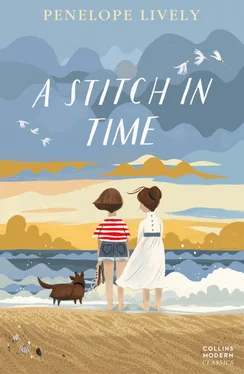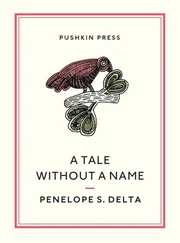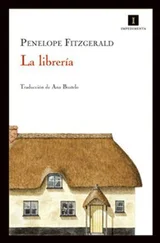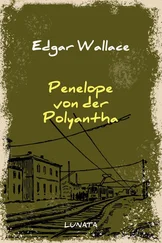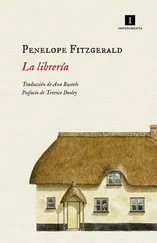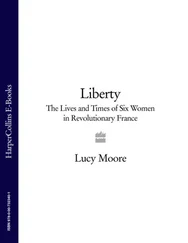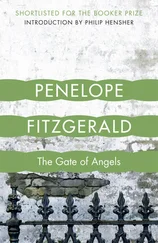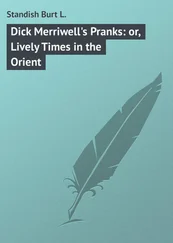The front doorbell rang.
“A caller!” said Mrs Foster.“But we don’t know anyone.”
She went through to the hall. Beyond the open door Maria could hear the mixture of voices – a strange one and her mother’s (that’s her talking-to-people-she-doesn’t-know voice, she thought). The voices ebbed and flowed; the kitchen clock ticked; the sun came out and made a neat golden square across half the table, down its legs and on to the floor. Maria became aware that she was being called, and went reluctantly into the hall.
“This is Maria,” said her mother. “Mrs Shand is our landlady. She lives over the road.”
Mrs Shand was very old. Her clothes were old-fashioned but lady-like, Maria recognised; silk dress and brooches and necklaces, and stockings that ended oddly in a pair of white plimsolls. She stared at Maria and said,“The last tenants had four. Just the one will be quite a change. Not that I mind children.”
I have never met a landlady before, thought Maria, so I don’t know if I mind them or not. I expect I shall find out.
“Well,” said Mrs Shand,“there’s plenty of space for the three of you, that’s for sure.”
“Plenty,” said Mrs Foster.“We hadn’t realised quite how large the house was.”
“Tenants are often surprised. The furnishings arouse comment also, from time to time.”
“We like Victorian things,” said Mrs Foster. “Aren’t you afraid of damage, though? With children about, and people being careless …”
“The house has been subjected to children all its life,” said Mrs Shand, a little tartly.“I grew up in it myself, with six brothers and sisters. And my mother before me. It is too old to change, like me. I had the kitchen modernised, as they call it. People seemed to object to the old arrangements.”
Maria, who had been studying the face on a cameo brooch pinned to the neck of Mrs Shand’s dress, and only half listening to the conversation, began suddenly to pay attention. How very strange to be staying in a house in which a great many children had grown up. In her own home, there had only been her: it was built eight years ago, and was younger, in fact, than she was. She thought of Mrs Shand, standing in this same doorway years ago as a girl her own age. She stared at the landlady’s face – hatched over with tiny, thread-like lines – for the shadow of this other person she must once have been, and could not find it. Had she, and others, leapt down those stairs three steps at a time, and sat in the tree in the garden?
“Maria,” said her mother, “Mrs Shand was speaking to you.”
Maria jumped, and paid attention again.
“I asked,” said Mrs Shand, “which room you chose for yourself.”
“The one at the back,” said Maria. “The little one.”
“Ah. The old nursery. That was always the children’s room. You can hear the sea at night.”
And the swing, thought Maria, and was going to ask about this swing when her mother began to speak. The conversation moved away to matters of newspaper deliveries and the electricity meter.
“Well,” said Mrs Shand, in a concluding tone of voice, “I think that is about all I need to tell you. The piano was tuned last month. Please feel free to use it.” She looked reflectively at Maria.“Quiet little thing, isn’t she? You are welcome to call in if there is anything you wish to ask about.” And then her grey and white patterned silk back view vanished between the green hedges of the drive.
“She matches the house nicely,” said Mrs Foster.
“Why doesn’t she live in it any more?”
“She finds it too big. She lives in a flat in the guest-house over the road.”
“I wish she’d taken her cat with her,” said Maria. And I wish I’d asked her about the swing, she thought. Never mind. Another time.
In the afternoon it rained. Excused the beach, Mrs Foster settled herself in the drawing-room to read, with barely concealed relief. Mr Foster went to sleep. Maria stared at the rain from her bedroom window for a while: it coursed down the glass in oily rivers, making the outline of the dark tree in the garden (her tree, as she now thought of it, the one that she had climbed that morning) swim and tremble like seaweed in a rock-pool. The thought of seaweed reminded her of the fossils from the beach and it occurred to her that she had meant to find out what they were called, and label them. She began to arrange them, comparing them with the ones in the miniature chest of drawers. Some were just the same, which made identification easy enough. She wrote their names in her best writing on small pieces of paper – Promicroceras … Asteroceras … – and arranged them in nests of cotton wool from the bathroom. It looked professional and scientific. One fossil, though, refused to be identified. It was a very ghostly thing, in the first place, just a hint of patterning on a lump of the blue rock that seemed at first glance to be nothing in particular. Only after a while did its lines and patterning become deliberate, the stony shadow of some ancient creature.
What I need, she thought, is a book. And downstairs in that room there are lots of books.
The books, though, when she stood among them in that library between the drawing-room and the dining-room, were quite remarkably unenticing. They reached from floor to ceiling in tiers of brown, maroon and navy blue. There was nothing gay in sight – not a coloured jacket or illustration – and when she pulled a book or two out at random they each had the same queer smell. It was the smell, she decided, of books that no one has got around to reading for a long time. And the gold-lettered titles on their spines were far from inviting … The Origin of Species , by Charles Darwin, The Testament of the Rocks , The Principles of Geology . It was as she stared at them with distaste, though, that it occurred to her that words like “rock” and “geology” were to do with fossils. She took one of the books down and there, sure enough, was a page of neat drawings of rock sections, and, a few pages later, of shells. The text, though, was as unintelligible, almost, as though it were in a foreign language, laden with cumbersome words that she could not understand and sentences so long that it was quite impossible to find out what they meant. The drawings, on the other hand, were nice, and one book at least looked as though it might be helpful. She selected an armful and took them upstairs to her bedroom.
Arranged in a row on the table they looked important, if daunting. She sat down at the table – an old, battered one it was, with inky grooves and at one side some deeply inked initials, H.J.P. – and opened The Origin of Species , not very hopefully. It was an extremely solemn book, though one page through which she skipped did talk quite interestingly about striped horses. Most of it she could not understand at all. She scowled at the book, scrubbing the heels of her sandals on the rung of the chair, while outside in the garden that small dog was barking again. This book isn’t going to be any good, she thought, I don’t really understand a word of it. She flipped through the pages, and as she did so the book fell open at the end, and there, on the blank last page, somebody had made drawings with a fine-nibbed pen, with writing beside each one.
Disapprovingly, because she had been brought up to believe that you should never scribble in books, Maria examined the writing, which she recognised as old-fashioned in its neat, sloping style, but a little uncertain, probably that of someone around her own age. There were several instances of mis-spelling. “Specimins collected upon the cliffs” she read, and then there was a list of Latin names – Gryphaea … Phylloceras … (it was impossible, of course, to know if these were correctly spelt or not) – with, beside each, a neatly penned drawing of a fossil. Several times the nib of the pen had caught on a rough bit of paper and spat a shower of minute ink dots which, in one place, the writer had turned into a little figure wearing a dress to below her knee, with a frilled pinafore on top, and black boots with many buttons. And long hair held back by a band. It was quite a good drawing. Better, thought Maria, than I could do. And then, running her eye down the page, she saw suddenly a drawing that looked familiar.
Читать дальше
